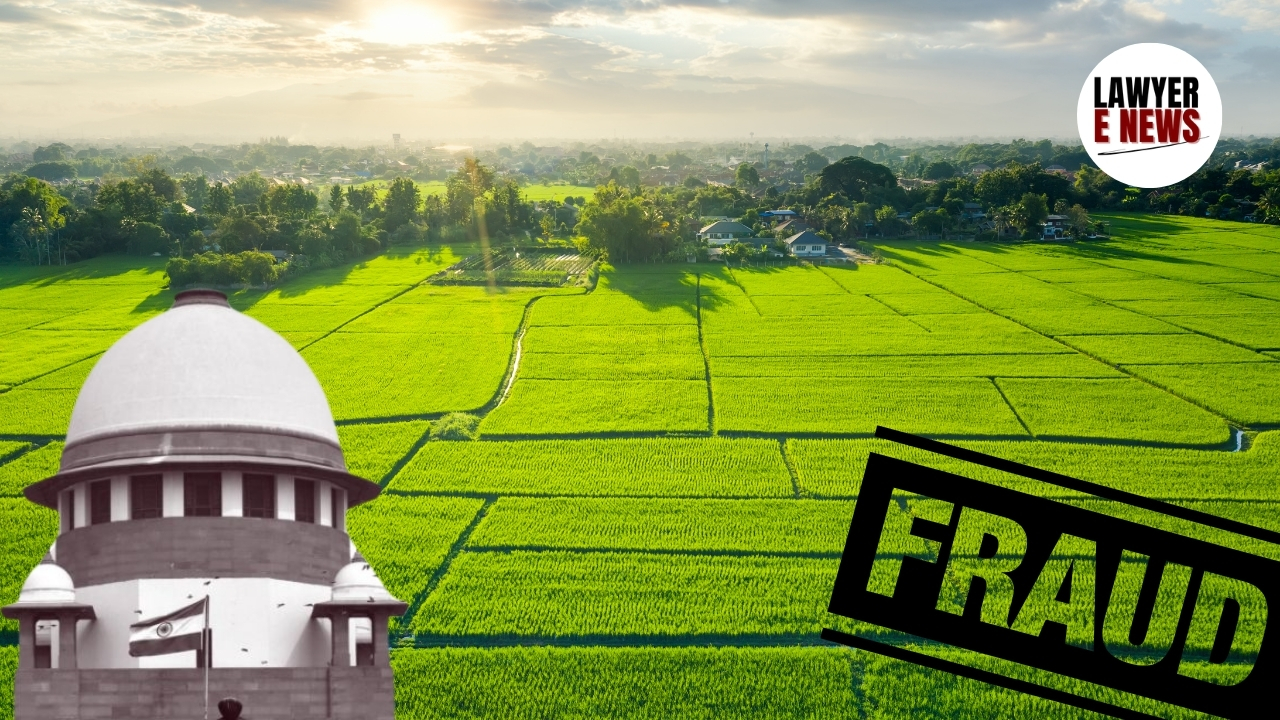-
by Admin
17 February 2026 4:27 AM



“Defence Can’t Trump FIR at Threshold Stage” – In a strong rebuke to the Rajasthan High Court’s approach to quashing serious criminal charges, the Supreme Court of India restored an FIR and ensuing proceedings involving allegations of cheating and forgery in a land deal, observing that “the offer to refund the money taken in advance will not in any way wash off the offence already committed.”
The Court held that the High Court had committed a serious error by accepting the defence version of the accused at the FIR stage and reiterated the principle that when the allegations disclose a cognizable offence, the matter must be investigated and tried, not truncated by premature judicial intervention.
The case arose from an FIR filed on October 29, 2018, by Suraj Narayan Khatoriya, alleging that he was induced to enter into a sale agreement based on a forged lease deed. The property in question was purportedly leased by the Jaipur Development Authority to one of the accused, who then entered into an agreement to sell a portion of it to the complainant for ₹61 lakhs, of which ₹10 lakhs was paid as advance.
Upon later verification, the complainant discovered that the lease deed dated April 29, 2009, was entirely bogus. He alleged that not only was he cheated, but that the same forged document had been used in multiple similar fraudulent transactions targeting other individuals.
The accused, however, approached the Rajasthan High Court seeking quashing of the FIR, claiming they themselves were duped by their company employees who presented the lease deed as genuine. They further claimed to have offered to return the money, and emphasized the time gap between the agreement and the filing of the FIR.
Surprisingly, the High Court quashed the FIR, citing the refund offer, absence of direct allegations of forgery, the delay in lodging the complaint, and the existence of other FIRs, suggesting that quashing would avoid multiplicity of proceedings.
The Supreme Court categorically rejected the High Court’s reasoning and made it clear that: “Whether the second and third respondents were themselves victims of fraud, is a matter of defence which cannot be considered at the stage of considering a prayer for quashing of the First Information Report.”
The Court reminded that at the stage of quashing, what matters is whether the FIR discloses a cognizable offence, not whether the accused may later prove their innocence. The existence of multiple FIRs was also brushed aside, as the Court clarified:
“Separate transactions would beget separate offences. Each act of cheating would constitute a distinct offence and cannot be nullified by calling it a second FIR.”
On the High Court’s reliance on the accused's willingness to return the money, the Supreme Court was unequivocal: “The offer to refund the money taken in advance will not in any way wash off the offence already committed.”
The bench further took note that a charge sheet had already been filed, and the material gathered during investigation corroborated the allegations made in the FIR. The order emphasized that the proper course was to allow the trial to proceed, where the accused could raise all their defences in accordance with law.
The judgment pointedly noted: “The High Court fell in error by quashing the First Information Report by acting on the defence plea of the second and third respondents that they were themselves victims of a fraud, or that they were not aware of the fraud, or that they are willing to return the money.”
By restoring the criminal proceedings and allowing the matter to continue to trial, the Supreme Court has reinforced the integrity of the investigative and judicial process, warning against short-circuiting criminal law at the very threshold.
This ruling serves as a sharp message to courts not to blur the line between trial and pre-trial stages. In the Court’s words, “defence plea is ordinarily not considered at the stage of considering a prayer for quashing the First Information Report”—a principle that protects the sanctity of the process and ensures that criminal trials are not prematurely stifled.
Date of Decision: May 21, 2025
